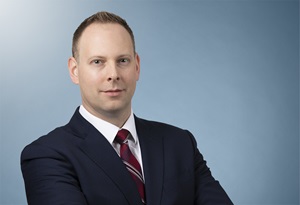New Jersey Removes Barriers to Assistance by Health Care Professionals
Philip Murphy, governor of New Jersey, signed Executive Order No. 112 on April 1, 2020, authorizing the New Jersey Division of Consumer Affairs (the DCA) to temporarily reactivate the licenses of recently retired health care professionals and grant temporary licenses to physicians licensed in foreign countries. The executive order also temporarily allows New Jersey licensed advanced practice nurses (APNs) and physician assistants (PAs) to independently perform services without the generally required collaboration or supervision with a physician. Lastly, the executive order grants broad civil immunity to health care professionals and facilities providing services in good faith in connection with New Jersey’s COVID-19 response efforts.
The executive order supplements New Jersey’s current health care workforce by:
- Authorizing the DCA to temporarily reactivate during the COVID-19 emergency the license of any health care professional previously licensed in New Jersey who retired from active practice or allowed their license to lapse within the last five years. Such health care professionals will be required to submit an application to the DCA director seeking reactivation of their license.
- Authorizing the DCA to grant a temporary medical license during the COVID-19 emergency to physicians (e.g., M.D. or D.O.) who are licensed and in good standing in foreign countries. These foreign physicians will be required to submit an application to the DCA director seeking a temporary medical license. As part of the application process, these foreign physicians must certify, among of things, that they have been engaged in practice for at least five years and have been engaged in clinical practice within the last five years.
- During the COVID-19 emergency, temporarily waiving certain scope of practice restrictions on APNs related to physician collaboration. During this waiver period, APNs will not need to: (a) enter into a joint protocol with a collaborating physician, (b) include the name, address and telephone number of a collaborating physician on prescription orders, (c) review patient records and charts with the collaborating physician, and (d) obtain authorization from a collaborating physician to dispense narcotic drugs for detoxification treatment or for substance use disorder.
- During the COVID-19 emergency, temporarily waiving certain scope of practice restrictions on PAs related to physician supervision. During this waiver period, PAs will not need to: (a) obtain physician supervision, (b) enter into a delegation agreement with a supervising physician, (c) obtain physician authorization to order or prescribe controlled substances, and (d) limit the assistance they can provide in the operating room.
- During the COVID-19 emergency, temporarily waiving the requirement for a health care professional to hold a New Jersey controlled dangerous substance registration who is granted a temporary license, provided the health care professional holds a current valid registration with the U.S. Drug Enforcement Administration.
Executive Order 112 further grants civil immunity to health care professionals and facilities for any damages resulting from an individual’s acts or omissions taken in good faith, whether or not within the scope of the licensee’s practice, in the course of providing health care services in support of New Jersey’s COVID-19 response efforts. According to the Executive Order, this immunity will apply to acts or omissions that occurred at any time during the Public Health Emergency or State of Emergency declared by the governor on March 9, 2020, including acts or omissions that occurred prior to the issuance of the Executive Order 112. Notably, this immunity would encompass non-COVID-19 care and treatment so long as the health care services are provided in support of New Jersey’s COVID-19 response efforts.
The purpose of this Executive Order is to increase the number of health care professionals who are available and willing to treat patients during the COVID-19 emergency and to permit APNs and PAs to provide treatment independently from physicians during the COVID-19 emergency. Governor Murphy is taking aggressive steps for the state of New Jersey to be better prepared in the event the number of New Jersey’s currently active physicians is not sufficient to treat the growing number of COVID-19 patients. This Executive Order comes on the heels of previous actions by the state to expand access to telehealth services and Rutgers University graduating 192 New Jersey Medical School students a month early. These actions are allowing for more health care professionals, especially APNs and PAs, to provide critically needed services during the COVID-19 pandemic without many of the regulatory restrictions typically imposed on such licensees.
As the number of cases around the world grows, Faegre Drinker’s Coronavirus Resource Center is available to help you understand and assess the legal, regulatory and commercial implications of COVID-19.
The material contained in this communication is informational, general in nature and does not constitute legal advice. The material contained in this communication should not be relied upon or used without consulting a lawyer to consider your specific circumstances. This communication was published on the date specified and may not include any changes in the topics, laws, rules or regulations covered. Receipt of this communication does not establish an attorney-client relationship. In some jurisdictions, this communication may be considered attorney advertising.


